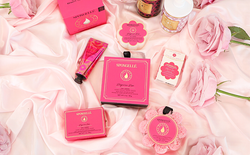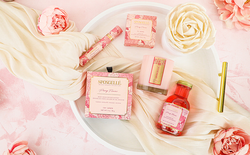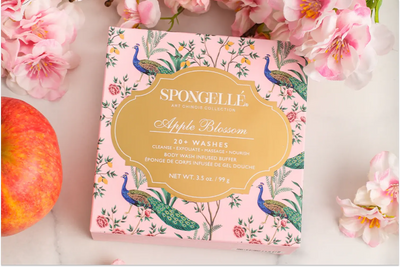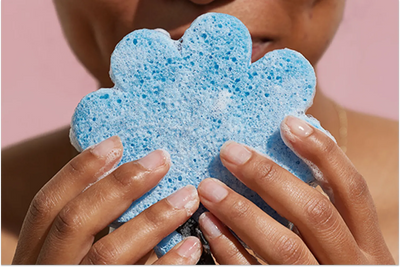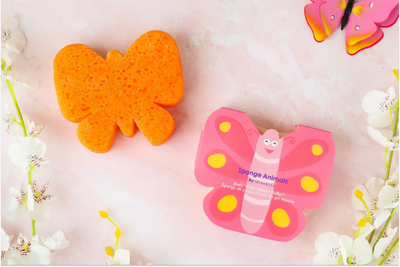Skincare and body care can be confusing at times. It’s hard to know what can and can’t be used, especially when everyone has different skin types. No matter what your skin type is, let’s be clear: no, you shouldn’t use body lotion on your face! It could actually be harmful to your facial skin to use body lotion, which typically has added fragrances and higher concentrations of ingredients that will penetrate the thicker skin on your body. Body lotion should only ever be used on your body, which means everywhere except your face.
Consider adding body lotion to your list of things to never put on your face. Your facial skin is delicate, and even those with normal or mature skin types will have sensitivities or reactions to lotions that are meant for your body. Unlike body lotion, lotion for your face can be a bit trickier to figure out which type works for you.
Don’t worry, though. We’ll break everything down for you in this article. Read on to learn about the lotions you should be using on your face and which ones you should use for your body!
What Lotion Should I Use On My Face?
On your face, you should be using a moisturizer or hydrating product that is meant for your specific skin type. If you use the wrong type of moisturizer, it could irritate your skin or exacerbate your skin issues further.
To figure out your skin type, go see your dermatologist, who will tell you what issues you have and how you can work on them. They will also recommend products that are right for your skin type. Once you determine your skin type, it will be much easier to figure out what moisturizing lotion you should use on your face.
We have listed the main skin types and suggestions for the types of moisturizers and lotions you should consider using. Remember, everyone is different! You can’t definitively say what will work for each skin type, but there are some products that typically do work for certain issues and skin conditions. Check out the list below for more information on skin types and lotions for your face!
Sensitive Skin
Sensitive skin is one of the hardest skin types to find products for. If your skin is red, blotchy, reactive to products, and easily irritated, you probably have sensitive skin. Sometimes even the smallest amount of product can cause your skin to react, especially if it has a ton of ingredients or added fragrance in it. Many people also have allergies to certain products and ingredients, which causes their skin to react.
Unfortunately, trial and error is really the only way to find something that works for sensitive skin. What works for someone might completely irritate another person. Typically, though, very simple moisturizers work. Drugstore moisturizers or moisturizers from your dermatologist that are made for sensitive skin are your best bets. Some people advise staying away from super natural products because most contain essential oils, which can be highly irritating.
Dry Skin
You know you have dry skin if you have flaky skin, tight skin, or skin that soaks up moisturizer as soon as it touches it. Your skin might also be red due to the flaking and lack of moisture in your skin. Those are the most common signs of dryness.
Thankfully, dry skin is one of the easier issues to resolve when it comes to issues with our skin. Typically, it’s related to one of three problems: your moisturizer is too light, the weather is affecting it (cold weather especially), or your products are too harsh, which causes your skin to shed.
People with dry skin have success with thicker and heavier creams. If you have redness and flakiness, you should also try and avoid fragrances, which can irritate and dry the skin further. You should also avoid exfoliating agents, such as certain acids and retinol. These are known to be harsh on the skin and can cause excess dryness. Stick with ingredients like hyaluronic acid, vitamin E, and extra hydrating ingredients.
Oily Skin
People with oily skin tend to get oil in specific places, such as their nose and forehead (otherwise known as the T zone), their chin, or just the forehead. It is uncommon for people to be oily on their cheeks, but it can happen.
The reason people get oily is because of excess sebum production, which is when the oil glands in your skin start pumping out more sebum than your skin can handle. The natural oil we produce is important for skin health, but when we produce too much, it can cause acne and clog your pores.
If this sounds like your skin, try going for moisturizers that are very light. In fact, you should consider trying ones that are gel-like. Even things that are lighter than a moisturizer, such as a hyaluronic acid serum, might do the trick depending on how oily your skin is. You can also try moisturizers that are mattifying or have anti-shine ingredients in them to help absorb the excess oil.
Normal Skin
If you have normal skin, consider yourself lucky. This means your skin barrier is strong and healthy, which prevents issues such as acne, rosacea, and other similar conditions from occurring (although there are tons of other factors to consider with skin issues). Normal skin is typically non-reactive to skin products, and it can handle harsher and stronger ingredients such as retinol and glycolic acid. Your skin type might also be able to handle added ingredients such as fragrances.
For normal skin, you can explore many different types of moisturizers. You will probably want to change yours with the season, using a heavier cream in the winter and a lighter one in the summer. Besides that, you can just try out a few different ones until you find one you like best.
Mature Skin
Mature skin is skin that has regulated and has resolved most of its issues, such as acne. However, there are some issues, like rosacea, which do not go away even with age. A general rule of thumb is that mature skin is post-menopausal for women and shows up roughly in your 40s-50s for men. Keep in mind that every body is different, and those are just generalities. Mature skin can handle harsher products like acids, retinol, and retinoids.
It can also handle aggressive treatments such as lasers, micro-needling, and skin resurfacing. Those with mature skin should look for heavier creams that are specifically made for anti-aging or that contain ingredients that target signs of aging, such as wrinkles and hyperpigmentation. If you don’t want anything aggressive, then a thick cream will do fine.
What Is The Best Body Lotion?
If you are more interested in moisturizing your body, then you need to know about the best body lotion. When choosing a lotion, you want to make sure it has moisturizing and hydrating ingredients. It should help your skin barrier lock in moisture while also helping to soothe and soften the skin. If it does its job, your skin will be baby soft after each use.
One of the best body lotions you can get is from Spongellé. Our lotions contain a powerhouse of moisturizing ingredients, including shea butter, argan oil, avocado oil, and vitamin E. They are made with an emollient formula, which means it provides intense hydration. They can be used everywhere on your body except for your face! Plus, we have tons of amazing scents to choose from, such as the beautiful Bulgarian Rose body lotion.
Conclusion
Hopefully, you can now understand why you shouldn’t use body lotion on your face. It’s just too heavy, even for those with dry skin. Plus, the added fragrances would cause a skin disaster for anyone, no matter how strong your skin barrier is. Instead, you should determine your skin type, which will help you narrow down the types of moisturizers or face lotions you can use.
To keep your body soft and smooth, body lotion from Spongellé is the way to go. And, if your hands are feeling even dryer than the rest of your body, we have an amazing hand cream that is perfect for use after you wash your hands or anytime you are starting to feel dry.
Sources:
The Best Moisturizers for Every Skin Type | Shape.com
How To Determine Your Skin Type, According To Skin Care Experts | Huffpost


